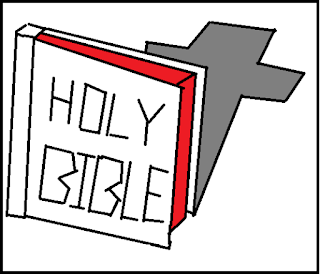Christianity and the Declaration of Independence
This is copied from the bulletin of Calvary Baptist Church on 472 Ocean Rd in Portsmouth NH. The bulletin date is 07/07/2024. It is a King James Version only church.
Christianity and the Declaration of Independence
The Declaration of Independence is a document at the very core of our American system of government, signed on July 4, 1776, the Declaration set in motion a chain of events that would lead to the Revolutionary War, the independence of the United States, and the establishment of an unbelievable effective system of government. There are several aspects of the Declaration of Independence that are decidedly Christian, and we will examine each of the them briefly.
People Were Created By God
The Declaration of Independence includes this famous quotation:
We Hold these truths to be self - evident, that all men are created equal, that they are endowed by their Creator with certain inalienable rights, that among these are Life, Liberty and the pursuit of Happiness.
Unpacking this statement, it is clear that the Founding Fathers believed that humans have a Creator. They acknowledge that human life came from God.
ALL MEN ARE CREATED EQUAL.
The Declaration, of course, asserts that all people are created equal. Even though they did not fully live out this idea in regards to slavery at the time, the Christian idea about the equality in the American system of government, culiminating in a time when slavery would be abolished.
Ultimately, the eradication of slavery in the United States is rooted in the Christian ideal of the equality of mankind.
The Declaration's Very Words Have Christian Sources
Not only the concepts but the very words of the declaration of independence are rooted in Christianity. When Thomas Jefferson wrote the declaration of independence, he did so with a great deal of input from those who had gone before him. He did a masterful job of setting forth our nation's reasons for coming into being, but his thoughts were not original. As political science professor, Donald S Lutz, observed, "(T)here was nothing new in the phrasing and ideas of the Declaration."
Jefferson drew many of his ideas from John Locke and William Blackstone, both Biblical Christians. He also reflected the work of a group of twenty-seven Scotch-Irish church elders in Mecklenburg County, North Carolina, who drafted their own Declaration in May 1775, under the direction of Elder Ephraim Brevard, a graduate of Princeton. A comparison of the Declaration of Independence with the Mecklenburg declaration of Independence reveals many similar phrases.
In declaring the endowment of these inalienable rights, Jefferson was also influenced by George Mason's "Virginia Declaration of Rights" which said: That all men are by nature equally free and independent and have certain inherent rights, of which, when they enter into a state of society, they cannot, by any impact, deprive or divest their posterity; namely the enjoyment of life and liberty, with the means of acquiring and possessing property, and pursuing and obtaining happiness and safety.
Much of the wording of the Declaration itself is rooted in the work of Christian ideas as expressed by Godly people of Jefferson's generation.
It cannot be refuted that Christianity had a great impact on the Declaration of Independence.






Comments
Post a Comment